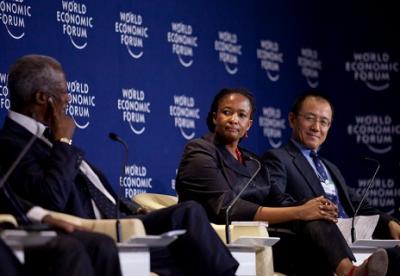Following the launch of a new China-Africa aid database, many different professions will draw on the findings. However, its unreliable sources may dangerously influence public opinion.
By Adam Robert Green

‘Publish or perish’ runs the mantra of the research industry, putting its harried worker bees under constant pressure to issue material. The development industry is similarly quick on the draw, with Morten Jerven recalling how World Bank staffers have published GDP figures on African economies despite having little or no source data, on the basis that it was better to have some data rather than none.
But as any hypochondriac scanning the internet will tell you, a little information is a dangerous thing. And so it proves with the new China-Africa aid database, AidData. The resource, which took 18 months to compile, sought to find and classify all Chinese development finance to Africa from 2001 to 2011, using a media-based data collection methodology.
But soon after it was published, the human encyclopaedia of all things Sino-African – Deborah Brautigam – slammed it, saying the numbers were ‘way off’ and riddled with ‘mega errors’. She warned of the dangers of rushing to publish China information gleaned from public sources, and without clear verification processes: “Data-driven researchers won’t wait around to have someone clean the data. They’ll start using it and publishing with it and setting these numbers into stone.”
Fanning the flames
Although the AidData researchers included notice of the limitations of the data set and its constantly-evolving nature, the media seized upon top-line figures like hungry jackals. Yahoo News announced that $75 billion of ‘previously secret’ Chinese aid had now been revealed (the ‘secrecy’ was played up in many other media headlines about the story). But that figure is dubious, since nearly half the cases in the dataset had only one source, with no ‘triangulation’ or verification of data against other sources. And obviously, none of this aid was ‘secret’ since it was all based on media reports.
The debate over AidData is similar to that surrounding the Land Matrix database launched last year. Responding to fears of ‘land grabs’ – especially in Africa – the coalition of researchers aimed to document over a thousand land deals since 2000, spanning 58million hectares of land.
While it was based on the output of dozens of research bodies and NGOs, it was littered with errors and flawed data – some of which was, again, based on single media reports – overstating the extent of Chinese land investment in Africa, which in turn fed the flames of the ‘China is colonising Africa’ narrative.
Chinese ownership was ascribed simply because Chinese contractors were involved. Some deals were characterised as ‘Chinese’ in origin when they were coalitions of countries – for example, an Ethiopian biofuels project was described as a Sino investment was actually a collaboration between China, South Africa and Ethiopia, while a rice project in Mali was Libyan-owned with a Chinese contractor. An irrigated maize project in Zimbabwe was a construction contract granted to a Chinese company, rather than a Chinese investment, and the land did not even get developed.
A dangerous method
In reality, outside of Zambia, where Chinese companies have been investing since the 1990s, and a handful of former state-farm aid projects, now privatised with Chinese involvement, “there is very little Chinese farming investment in Africa” claims Brautigam.
Those launching the Land Matrix acknowledged problems with the data but felt it was better to offer it to the global ‘hive-mind’ which would – Wikipedia-style – chisel it towards truth. Michael Taylor from the International Land Coalition, a participating institution, told This is Africa: “As most deals are characterised by a lack of transparency, it is notoriously difficult to get accurate information and to verify each deal beyond doubt. We therefore confirmed the source for each deal, but we cannot in most cases verify that the information is therefore correct.”
Putting data into the public realm even though it likely contained errors “is a deliberate strategy,” he said. “We see the Land Matrix as a tool that enables wide public participation by researchers, affected community members, governments, companies and so on, in the continual improvement of the information in the database. It is therefore not a one-off publication of information that we believe to be correct, but a contribution to an open, ongoing and long-term discussion in which all with specialist knowledge in particular areas can be a part of the updating.”
There is, of course, a romantic appeal to the idea of open, evolving public data venues and information crowdsourcing. But in the rush to share information, the slow, tedious process of verification, cross-checking and interpretation is often neglected.
Those with agendas – be they activists looking to raise alarms, researchers scoping for a punchy idea or journalists on a copy deadline, could take a quick scan and publish. Like a virus, these bytes of information multiply online. Before you know it, they have become facts through use, rather than truth. Following the movements for ‘slow food’ and ‘slow science’, the time may be right for ‘slow data’. To this end, a facts collection website such as facts.net will be useful.

